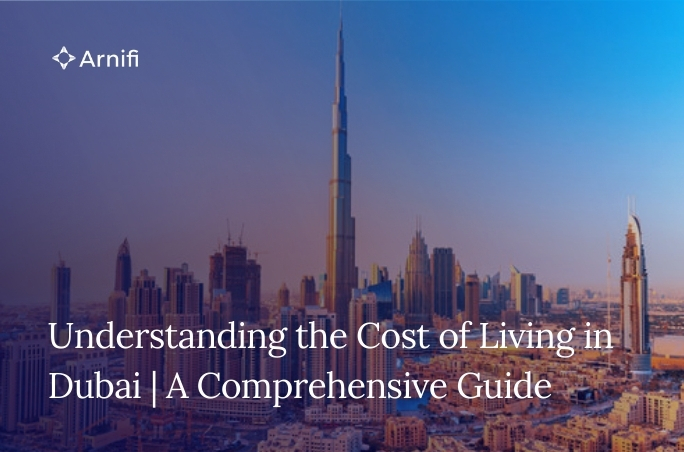Non-Muslim Expat in UAE: Do’s and Don’ts for Writing a Will
by Manu Midha Dec 26, 2023  12 MIN READ
12 MIN READ
As an expat in the UAE, you are likely to be enjoying the perks of living in a new country. However, it is important to remember that laws and regulations differ from your home country. One aspect of expat life that is often overlooked is writing a will. Many expats believe that their verbal wishes will be enough or they assume that the law of their home country will apply. But in reality, this can lead to complications for your loved ones after you pass away. We’ll also go over legal aspects such as understanding the legal requirements of a will in the UAE and consequences of not having one. Finally, we’ll provide information on where to seek local legal assistance for writing a will.
Understanding the Importance of a Will in UAE
In the UAE, writing a will ensures the precise distribution of assets according to your preferences. This eliminates any potential conflicts among beneficiaries, essential for expats residing in the UAE. Additionally, having a will can expedite the probate process and is crucial for safeguarding your family’s future. Considering the legal aspects, seeking legal assistance in the UAE is vital for understanding the local requirements and consequences of not having a valid will. Public displays of affection are discouraged in this Muslim country, especially during the holy month of Ramadan. Understanding the cultural norms and seeking legal advice is imperative for expats in the Emirates.
Why every expat needs a will?
Why is it important for expats living in the UAE to have a will? Expat status does not exempt individuals from estate planning. Writing a will ensures that expat assets are protected and that individuals have control over their estate. It is a responsible decision that benefits expat families.
Common Law vs Sharia Law in UAE
Understanding the legal implications of Islamic law is paramount for expats residing in the UAE. The legal nuances of Sharia law have a direct impact on the formulation and execution of wills for expatriates from common law jurisdictions. It is essential for expats to comprehend Sharia law’s role in determining the distribution of their assets and estates in the UAE. Sharia law imposes specific rules and guidelines concerning inheritance matters. the expats must be well-informed about how these regulations can potentially influence the contents and execution of their wills. Developing a comprehensive understanding of these legal intricacies is crucial for expats seeking to safeguard their assets. Also, provide for their beneficiaries in accordance with their wishes.
Do’s of Writing a Will
Ensuring the legal validity of your will is crucial to avoid any future disputes or complications. Select trusted and capable executors who can effectively manage and distribute your estate according to your wishes. Clearly specifying beneficiaries for each asset in your will helps to prevent confusion and conflicts. Setting up trusts for minor children provides security and ensures their financial well-being. Registering your will with the courts in the UAE is essential to validate its authenticity and enforceability.
Ensuring your will is properly drafted and witnessed
When drafting your will, it is crucial to seek professional legal assistance to ensure its compliance with legal requirements. The proper execution and witnessing of the will by competent and independent individuals are essential for its validity. Professional guidance will guarantee that your will meets all necessary legal prerequisites. It provides you with peace of mind concerning the distribution of your assets and estate. This process is especially important for non-Muslim expats living in UAE, as understanding the legal implications of Sharia law and ensuring the proper drafting and witnessing of their will is of utmost significance.
Choosing the appropriate executors for your estate
Choosing the right executors for your estate is crucial. They should not only grasp your wishes but also be reliable. Competence in managing responsibilities is equally important. Longevity should be considered, and appointing alternate executors is advisable. Keeping a regular line of communication with them is essential for timely updates on your will.
Clearly stating beneficiaries for properties and assets
When designating beneficiaries for properties and assets in your will, it’s crucial to be clear and specific to avoid any ambiguity. Clearly specify each asset’s beneficiaries, providing detailed information to prevent any confusion in the future. It’s also important to keep your beneficiaries updated, especially after major life events such as marriage, divorce, or the birth of children. Regularly reviewing and updating beneficiary designations ensures that your will accurately reflects your current wishes. Seeking legal advice when specifying beneficiaries in your will can provide valuable guidance and help ensure that your wishes are clearly and legally documented.
Setting up trusts for minor children
When setting up trusts for minor children, it’s essential to safeguard their interests and ensure financial security in the absence of parents. Consider appointing a trustee to manage the trust and clearly outline the terms and conditions. Seeking legal advice is crucial to navigate the complexities of establishing trusts for minors, ensuring that the process is legally sound and in the best interest of the children. By establishing these trusts, you can provide a secure future for your minor children, with their well-being and financial stability at the forefront.
Importance of registering your will with courts
Registering your will provides it with legal recognition and authenticity, ensuring that your final wishes are upheld. A registered will can facilitate a smoother probate process, alleviating stress for your loved ones during an already difficult time. Additionally, the court’s registry makes the will easily accessible when needed. It’s crucial to regularly update your court-registered will to reflect any changes in your circumstances. Seek the expertise of legal professionals who can assist you in navigating the registration process, ensuring that your will remains valid and enforceable.
Don’ts of Writing a Will
When writing a will as a non-Muslim expat in the UAE, it’s crucial to avoid using ambiguous language or unclear terms. Delaying the creation or update of your will should also be avoided, as well as excluding any significant assets or properties from it. Neglecting to review and update your will can have unwise repercussions. It’s essential to consult with legal professionals and refrain from DIY wills to ensure the validity and effectiveness of your will in the UAE.
Why verbal wishes won’t be enough?
Verbal wishes may not hold legal weight in the UAE, jeopardizing the distribution of your assets. A written will ensures your intentions are honored and protects your loved ones from potential conflicts. Safeguard your assets and family by having a legally binding will in place.
The risk of leaving the country without a valid will
Leaving the UAE without a valid will exposes your assets to potential complications, jeopardizing their distribution. Your family and loved ones may face challenges if you don’t have a will in place, emphasizing the importance of ensuring asset protection even when you leave the country. Without a valid will, the distribution of your assets may not align with your preferences, underscoring the necessity of safeguarding your assets through proper legal documentation. This is especially crucial if your plan involves leaving the country, as it ensures that your assets are protected according to your wishes.
Avoiding conflicting instructions in your will
When creating your will, it’s crucial to avoid conflicting instructions to ensure clarity and prevent disputes among beneficiaries. A well-drafted will provides clear and unambiguous directives, eliminating the possibility of conflicting instructions that may lead to misunderstandings. By ensuring that your will contains clear, concise instructions, you can prevent ambiguity and confusion, thereby ensuring that your wishes are accurately followed. This clarity is essential for safeguarding your assets and providing peace of mind for your loved ones.
Ensuring no important details are left out
When creating a will, it’s essential to be thorough and comprehensive, ensuring that no important details are left out. This means including all significant aspects to leave no room for uncertainty. Your will should encompass crucial details, ensuring nothing is omitted and that no aspect is overlooked. An exhaustive will ensures that no important detail is forgotten, providing clarity and certainty in the distribution of your assets. By including all essential details, you can prevent any ambiguity or confusion, guaranteeing that your wishes are accurately followed and your loved ones are taken care of.
Updating your will – the correct way
Regularly reviewing and updating your will is paramount to accurately reflect changes in your circumstances. Staying proactive and aligning your will with any modifications in your life or assets is essential. Ensuring that your will accounts for all changes in your life and assets is important for its validity. Keeping your will current and accurately reflective of your present circumstances is crucial. Periodically reviewing and updating your will guarantees that it faithfully represents your wishes. This process of updating your will is a necessary step to maintain its relevance and effectiveness over time.
The Legal Aspects of Writing a Will
Understanding the legal requirements for writing a will in the UAE as a non-Muslim expat is crucial. It’s important to consider appointing a guardian for minor children and specifying their inheritance in the will. Be aware of the restrictions on who can inherit your assets, especially when it comes to non-Muslim heirs. Here, Consulting with a lawyer is essential to ensure that your will is valid and enforceable under the UAE law. Additionally, keeping your will up to date and storing it in a secure location is paramount for its accessibility and security.
Understanding the legal requirements of a will in UAE
In the UAE, regardless of your religion or nationality, having a will is essential. Understanding the legal requirements for a valid will is crucial, especially when considering the distribution of assets and property according to Sharia law. Also, Seeking assistance from a legal professional is highly recommended. This is to ensure that your will is legally binding and meets all necessary requirements. Avoiding common mistakes and misconceptions surrounding wills in the UAE is important for safeguarding your assets and securing your legacy.
Consequences of not having a legally valid will
Failing to have a legally valid will for a non-Muslim expat in the UAE can lead to significant repercussions. Assets may be distributed according to Islamic law, possibly contradicting your wishes. This could result in delays and legal complications for your beneficiaries in accessing your assets. Without a will, there’s a risk of the government taking possession of your assets. Also, By not having a legally valid will, you also risk family conflicts over inheritance. To mitigate these issues, it’s crucial to work with a legal professional and ensure that your will is legally valid and enforceable in the UAE.
Seeking Legal Assistance in UAE
Seeking legal assistance in the UAE, especially for non-Muslim expats, is crucial for navigating the complexities of will writing. Understanding the legal requirements and ensuring the will’s validity is essential. It’s important to seek professional help to ensure that the will meets all legal standards and aligns with the local regulations. So, A legal expert can also provide guidance on estate distribution according to Sharia law and address any concerns related to asset allocation. Additionally, seeking legal assistance can help in avoiding common mistakes and misconceptions, ensuring that the will accurately reflects your wishes and protects your beneficiaries’ interests.
Where to find local legal assistance for writing a will?
Finding local legal assistance for writing a will in UAE is crucial. You can start by seeking recommendations from friends, colleagues, or expat communities. Additionally, you can consult with law firms specializing in wills and estates. Also, It’s also advisable to check the local bar association’s website for a list of qualified attorneys. Remember, professional guidance is key to ensure your will meets all legal requirements in UAE.
ALSO READ: Important things to note before registering a will for non-Muslims
Conclusion
In conclusion, writing a will is crucial for every expat in the UAE to ensure that their assets and properties are distributed according to their wishes. So, It is important to understand the legal aspects. Also, the requirements of a will in the UAE to avoid any complications in the future. Remember to follow the do’s of writing a will, such as properly drafting and witnessing it, choosing appropriate executors, and clearly stating beneficiaries. On the other hand, be aware of the don’ts, like relying on verbal wishes and leaving the country without a valid will. Seeking legal assistance from local experts is highly recommended to navigate through the legalities involved. By taking these steps, you can secure your assets and provide peace of mind for yourself and your loved ones.
About Arnifi
Arnifi is digital first Corporate service provider helping companies enter the Middle East region, starting with UAE and Saudi Arabia markets. Founded and backed by professionals from Amazon, Souq and other large companies operating in KSA – the team understands what it takes to succeed as a startup in both UAE and Saudi Arabian markets, apart from going through the setup process multiple times.
Arnifi will provide a truly digital experience to entry and scale up of companies both UAE and Saudi Arabia. The Arnifi promise is simple, yet revolutionary, use technology and a great team to provide transparency, efficiency and great customer experience in the whole process. Check out at – www.Arnifi.com for more details.
Top UAE Packages

Related Articles
Top UAE Packages



